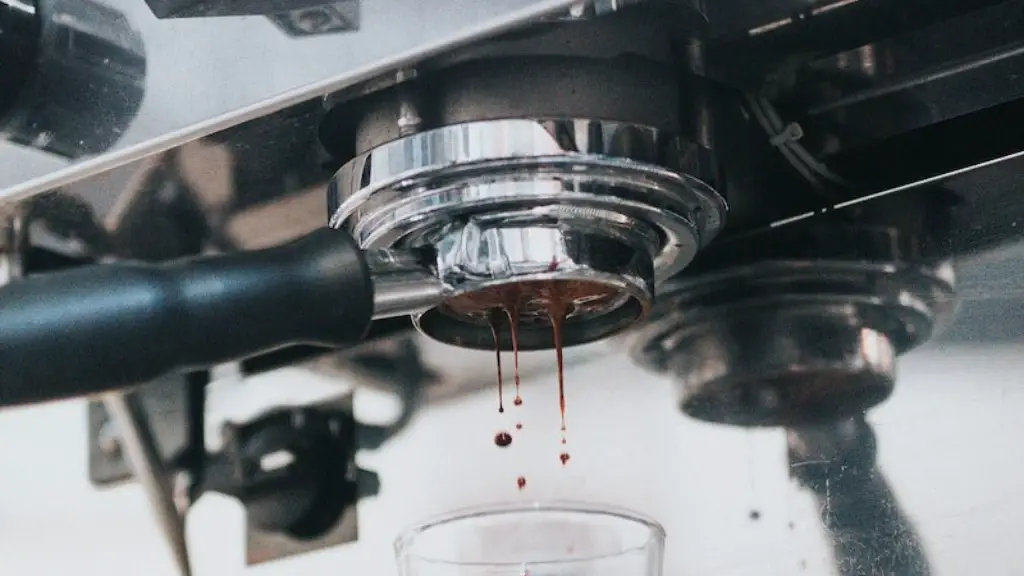It has become a common practice to fast for lab tests, which has made people question: Can you drink coffee when fasting for lab work? In this article, we will delve into this intriguing topic and offer concise and informative advice on the matter.
Studies have found that the amount of caffeine in a cup of coffee very small and that this is therefore unlikely to affect fasting blood test results. Doctors generally agree that having a cup of coffee in the morning when fasting for a blood test shouldn’t hinder your results. Caffeine is a stimulant, meaning it increases alertness, blood pressure, heart rate, and metabolism. It is also considered a mild diuretic, meaning that it causes the body to lose water. As such, if the amount of caffeine is low enough, it shouldn’t be a risk to your test results.
Furthermore, some experts state that coffee shouldn’t have an effect on the results of most common tests like a fasting glucose test or a C-reactive protein test. What’s more, having a cup of coffee may actually help you if you’re struggling to stay awake or energized during the early morning hours when fasting for lab work.
Despite the seemingly mild effects from coffee drinking, it’s important to remember that everyone reacts to coffee differently. Depending on individual sensitivity to caffeine, some people might find that even a small amount of coffee affects their lab results. In any case, it is always best to speak to your healthcare provider regarding any questions or concerns you may have about drinking coffee while fasting for lab work.
In addition, it’s a good idea to ask your doctor if they would prefer you to avoid coffee before the test. If they do, then it’s a good idea to stick to just water while you’re fasting. But if they don’t think there’s an issue with you having coffee, then it probably won’t make any difference to your test results.
When it comes to drinking coffee while fasting for lab work, it’s important to be mindful of the amount of caffeine and the type of lab tests being conducted. While it is generally okay to have a cup of coffee in the morning before a fasting lab test, it is recommended to speak with your doctor beforehand to ensure that it won’t have an effect on your results. Taking this precautionary measure will save you, and your healthcare provider, any hassle if you’re unable to provide accurate results due to drinking coffee.
Effects of Caffeine on the Body
Caffeine is a chemical compound found in coffee, tea, chocolate, soda and some energy drinks. It’s what gives these beverages their energizing boost. Caffeine is a stimulant, meaning it increases alertness and energy level, as well as blood pressure, heart rate and breathing rate. It also may act as a mild diuretic and increase urine output. As such, having coffee while fasting for lab work could affect the test results.
Caffeine is a popular choice for those looking to increase energy, because it is both readily available and relatively inexpensive. It is a stimulant, meaning it can increase alertness, concentration and physical performance. However, it can also cause side effects like headaches, insomnia, irritability, restlessness, and anxiety. Additionally, caffeine is addictive, so it’s important to limit consumption in order to avoid dependency.
In general, experts recommend limiting caffeine intake to 400 mg per day, which is equivalent to four 8-ounce cups of brewed coffee. That said, different people will react differently to various amounts of caffeine, so it’s important to pay attention to how one’s body responds to caffeine in order to establish an individualized limit. In addition, caffeine can stay in the body for up to 6 hours, and some experts recommend avoiding it 12 hours before a lab work.
What Coffee May Interfere With
Certain tests may be affected by coffee consumption, particularly if the amount of caffeine is high or if it is taken close to the test. While it is generally possible to have a cup of coffee when fasting for lab work, certain tests may be affected, such as liver function tests, fasting glucose tests, and some drug tests, as caffeine can potentially interfere with the results of these tests.
It is important to note that caffeine can interfere with certain more sensitive tests. If a doctor orders a blood test to measure specific hormones, such as cortisol or testosterone, caffeine consumption can potentially interfere with the test results due to its stimulant effects. In addition, if a doctor orders a test to measure the uric acid level in the blood, caffeine may be a factor since it is a mild diuretic.
Moreover, if a doctor orders a drug test, caffeine can potentially lead to a false-positive result. This is because caffeine can temporarily increase the body temperature, which not only affects the test results, but may trigger a positive test for certain drugs that are affected by body temperature. It is therefore important to ask your doctor if it is necessary to avoid caffeine before certain tests.
Conclusion
Overall, it is generally acceptable to have a cup of coffee when fasting for lab work. However, as everyone responds differently to caffeine, it is important to speak to your doctor about the amount you can safely consume. Furthermore, it is important to note that caffeine may interfere with certain tests, and it is recommended to avoid caffeine in the 12 hours before those tests. Ultimately, it is best to discuss your options with a healthcare provider to ensure that your lab results will not be impacted by coffee consumption.
Other Ways Caffeine Affects Lab Work
Aside from potentially interfering with fasting lab work, caffeine can affect other medical tests in other ways. For instance, caffeine can alter electrocardiogram (ECG) readings, as it increases heart rate and blood pressure. As a result, it’s important to let your doctor know if you have recently consumed any caffeine prior to having an ECG test.
In addition, regular caffeine consumption can increase the risk of false-positive results when testing for certain drugs of abuse. For example, consuming caffeine prior to a urine drug screen can increase the likelihood of a false-positive result for methamphetamine or amphetamine use.
It is therefore important to inform your doctor of your caffeine intake when undergoing any type of medical testing. This will help them make an informed decision about whether caffeine should be avoided prior to the test to ensure accurate results.
Health Benefits of Caffeine
Despite its potential side effects, there is some evidence that caffeine may have some health benefits. Studies have found that caffeine may improve cognitive performance and reaction times, as well as physical performance. It is also thought to help boost energy levels and alertness. As such, some people find that coffee helps them stay productive and focused on their tasks.
A number of studies have also found that caffeine can reduce the risk of some chronic diseases. For instance, caffeine has been linked to a decreased risk of type 2 diabetes, Alzheimer’s disease, and certain types of cancer. It may also help to lower the risk of stroke and liver disease.
It’s important to note, however, that caffeine can have some unwanted side effects, including restlessness, anxiety and headaches. Furthermore, it is important to limit caffeine consumption to no more than 400 mg per day to avoid any potential health complications or dependency.
Caffeine and Stress
Caffeine can also have an effect on stress levels. While some people may find that it helps to reduce stress, others may find that alcohol increases stress, irritability, and anxiety. These risks can be higher if you already experience anxiety or depression and are at an increased risk of developing caffeine-induced anxiety. As such, it’s important to be mindful of your caffeine consumption and to limit your intake to avoid any potential side effects.
In addition, it’s important to remember that caffeine is not a replacement for proper stress management. If you’re feeling stressed or anxious, it’s best to speak to your doctor about the best ways to address and manage stress. This may include lifestyle changes, such as exercising more, eating a healthy diet, getting enough sleep and taking breaks when necessary.
While caffeine can provide a quick energy boost, it’s important to remember that it has its own risks and side effects. Therefore, it is best to be mindful of one’s intake and to always speak to a doctor before drinking coffee when fasting for lab work.





